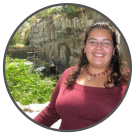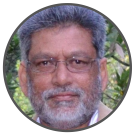This committee is comprised of educators, government agencies and researchers who are immersed in the field of air quality sensors. The committee will develop the technical program for the conference, chair sessions, and invite speakers. They can provide a unique view of the current discussions, what topics are in need of further exploration, and the studies that are important to world views.

Kofi Amegah
Senior Lecturer, University of Cape Coast
I am a Senior Lecturer of Epidemiology and Biostatistics at the University of Cape Coast, Ghana with expertise in air pollution and nutritional exposure assessment, and quantification of the effects of these exposures for maternal, perinatal and cardiovascular health through use of varying statistical modeling techniques. I lead a public health research group at the Department of Biomedical Sciences with our work focused on the interface of nutritional and environmental determinants of adverse health outcomes in locations of Ghana using modern and robust epidemiological and statistical methods. I lead the Ghana Urban Air Quality Project (GHAir) which focuses on deploying mixture of low cost sensors and reference grade monitors in urban areas of Ghana to provide high spatio-temporal air pollution data for epidemiologic research, community advocacy and to bridge important data gaps in Ghana. I am a member of the International Society for Environmental Epidemiology (ISEE) and Nutrition Society UK, founding member of the AfriqAir Network, and collaborator of the Global Burden of Disease (GBD) studies. I participated in the WHO expert meetings of the Global Platform on Air Quality and Health, and presently a member of the Exposure Working Group of the WHO Global Air Pollution and Health – Technical Advisory Group (GAPH-TAG). I am a member of the Climate and Clean Air Coalition (CCAC) & Stockholm Environment Institute (SEI) Africa Integrated Assessment on Air Pollution, Climate Change and Sustainable Development Group and led the chapter on “Air quality and human health in Africa”. I serve on the editorial board of Public Health Nutrition (Associate Editor), Plos ONE (Academic Editor), Plos Global Public Health (Academic Editor), Medicine (Epidemiology section), Environmental Epidemiology, and Journal of Exposure Science and Environmental Epidemiology. I have over 14 years teaching experience at the University level and teaches courses in Epidemiology, Biostatistics, Nutrition and Environmental Health.
aamegah@ucc.edu.gh

Kalpana Balakrishnan
Associate Dean of Research & Director, Sri Ramachandra University
Kalpana Balakrishnan is a leading global environmental health scientist in India, spearheading research and academic efforts in the areas of health effects of air pollution and chemical risk assessment. Her primary scientific contributions are centered on (i) developing novel exposure assessment approaches to characterize the complex exposures experienced by rural and urban populations in LMICs and (ii) designing and conducting strategic epidemiological investigations in India to catalyze policy level actions by leveraging across the national and global pools of evidence. She has contributed to several national and international technical assessments concerned with air quality including the Global Burden of Disease and Comparative Risk Assessments, The IARC Monographs, The Global Energy Assessments, The World Health Organization Air Quality Guidelines and India State level Burden of Disease Initiative. She is also a Fellow of the National Academy Of Medical Sciences, India.
kalpanasrmc@ehe.org.in

Karoline Barkjohn
Physical Scientist, United States Environmental Protection Agency
Karoline Barkjohn is a Physical Scientist in EPA’s Office of Research and Development in Research Triangle Park, North Carolina. Her research focuses on the evaluation and improvement of air sensor performance across the United States. In 2018 she received her Ph.D. in environmental engineering from Duke University. Karoline also holds master’s and bachelor’s degrees in environmental engineering from Georgia Tech and NC State University, respectively.
Barkjohn.Karoline@epa.gov

Alena Bartonova
Research Director & Senior Scientist, Norwegian Institute for Air Research
I am a mathematical statistician turned environmental scientist, with interest in interdisciplinary and transdisciplinary approaches. I have worked in exposure science, air quality monitoring and assessment, environmental health impact assessment and science-policy-public interface. I have developed a new area of activities at NILU Climate and Environment Research Institute, related to the use of low cost sensors for air quality, starting with the EU FP7 funded CITI-SENSE project (https://co.citi-sense.eu, 2012-2016).
In addition to research, I currently serve as Manager, European Topic Center (ETC) for Health and the Environment of the European Environment Agency (https://www.eionet.europa.eu/etcs/etc-he). I have had several positions of trust , including membership in European Scientific Committee for Environmental Health Risks (2013-2016), Advisory Groups in EU FP5 and FP7, membership in Researcher Forum of Oslo Centre for Interdisciplinary Environmental and Social Research, www.ciens.no. I am also active in Czech expat community in Norway. I believe in knowledge based decision making at all levels, even if I recognize that knowledge plays only a minor role in our decisions.
Alena.Bartonova@nilu.no

Zoe Chafe
Technical Lead for Air Quality, C40 Cities
Dr. Zoë Chafe is Technical Lead for Air Quality at C40 Cities, where she empowers individuals, organizations and communities with the data and strategy needed to build an equitable, safe, and healthy future. Zoe leads C40's air quality data & analytics team, technical assistance programs, and regional air quality programs, including African Cities for Clean Air. Zoë specializes in integrating air quality & climate action, with a focus on benefits to public health. She holds a PhD (Energy and Resources) and MPH (Master of Public Health) from the University of California, Berkeley, as well as a bachelor’s degree from Stanford University. She has collaborated with the Intergovernmental Panel on Climate Change (IPCC), Global Burden of Disease studies, the Global Energy Assessment, and the World Health Organization. Her work on household energy, air pollution, climate, and health has been supported by the National Science Foundation Graduate Research Fellowship, the Young Scientists Summer Program at the International Institute for Applied Systems Analysis (IIASA), and the Atkinson Postdoctoral Fellowship in Sustainability at Cornell University.
zchafe@c40.org

Yanju Chen
Manager, California Air Resources Board
Dr. Yanju Chen is the manager of the Community Air Quality Section in the Special Assessment Branch of the Air Quality Planning and Science Division at the California Air Resources Board (CARB). The section is responsible for developing and managing CARB’s new cloud-native air quality data portal (AQview) to specifically address exposures to harmful pollutants in California’s highly pollution-burdened environmental justice communities. The Section is also responsible for conducting comprehensive analyses of air quality data in communities to help community members understand the air quality and exposure levels in their neighborhoods and make informed decisions. Yanju received her Ph.D. in Civil and Environmental Engineering from the University of Illinois at Urbana-Champaign, with a focus on air quality analysis and characterization of carbonaceous aerosols through laboratory measurement, computational modeling, and statistical data analysis.
Yanju.Chen@arb.ca.gov

Serena Chung
Extramural Research Lead, United States Environmental Protection Agency
Serena Chung is the Extramural Research Lead for EPA’s Air, Climate, and Energy (ACE) Science to Achieve Results (STAR) extramural research program. Prior to joining to the EPA, she was a research professor in the Laboratory for Atmospheric Research at Washington State University (WSU), where her research focused on interactions between air quality and climate.
chung.serena@epa.gov

Andrea Clements
Research Physical Scientist, United States Environmental Protection Agency
Andrea L Clements, Ph.D. is a research physical scientist with the U.S. Environmental Protection Agency’s Office of Research and Development, located in Research Triangle Park, North Carolina. Andrea leads efforts to evaluate sensor performance, test the usability of sensors for a variety of applications, summarizes best practices, and develop resources that educate and guide others in the most effective use of sensors and the data they produce. She holds a Ph.D. in Civil and Environmental Engineering from Rice University in Houston, Texas and also has degrees in Environmental Science and Engineering (M.S. Caltech), Chemical Engineering (B.S. Washington University in St. Louis), and Mathematics (B.A. Cornell College).
clements.andrea@epa.gov

Ashley Collier-Oxandale
Physical Scientist Researcher, Colorado Department of Public Health & Environment
Dr. Ashley Collier-Oxandale is a Physical Science Researcher in the Air Toxics and Ozone Precursors Section (ATOPS) at the Colorado Department of Public Health and Environment. Her work includes building a cloud database to store and process data from a range of measurements, including sensors, and supporting the integration of sensors into ATOPS operations. Dr. Collier-Oxandale received her Doctor of Philosophy in Environmental Engineering degree from the University of Colorado Boulder.
ashley.collier-oxandale@state.co.us

Don Collins
Director, University of California Riverside
Don Collins is a professor of Chemical and Environmental Engineering and the Director of the College of Engineering – Center for Environmental Research and Technology at the University of California Riverside. He received his B.S. in Civil Engineering from Virginia Tech in 1994 and his Ph.D. in Environmental Engineering Science from Caltech in 2000. He was a faculty member in the Atmospheric Sciences department at Texas A&M University for 19 years prior to moving to UCR in 2018. He has taught a range of undergraduate and graduate classes on topics including atmospheric chemistry, air pollution, meteorology, and instrumentation. His current research includes use of portable chambers to study the growth and transformation of aerosols in various environments, use of flow reactors to study aqueous phase atmospheric chemistry, and use of drones to study vertical profiles of ozone and other pollutants. He leads an active research team at UCR and is an author on over 75 peer-reviewed publications.
donc@ucr.edu

Eben Cross
Chief Science Officer, QuantAQ
Eben has over 20 years of experience developing analytical tools to measure air pollution. He received his PhD in physical chemistry from Boston College in 2008 in close collaboration with the Cloud and Aerosol Chemistry Center at Aerodyne Research. He was introduced to air quality sensors in 2013-14, when he taught the senior capstone course in the Civil and Environmental Engineering Dept. at MIT which resulted in one of the first, real-time, online campus-wide AQ sensor networks in the US. Eben joined Aerodyne in 2015 to lead a new R&D trajectory for the company focused on the development of atmospherically rigorous air quality sensors. In June of 2019, he co-founded QuantAQ where he and his team have continued to push the boundaries of what's possible when you combine distributed sensor networks with strong fundamentals in atmospheric chemistry, data science and software engineering.
eben.cross@quant-aq.com

Priyanka DeSouza
Assistant Professor, University of Colorado Denver
Priyanka deSouza is an Assistant Professor at the Department of Urban and Regional Planning at the University of Colorado Denver where she probes different ways of understanding air pollution and its effects. Before starting at CU Denver, Priyanka obtained a Ph.D. in Urban Studies and Planning from the Massachusetts Institute of Technology. She read for an MSc in Environmental Change and Management and an MBA at the University of Oxford where she studied as a Rhodes Scholar. Priyanka has a Bachelor and Master of Technology in Energy Engineering from the Indian Institute of Technology Bombay. She has worked as a consultant for the World Health Organization, UN Environment, and Project Drawdown.
priyankadesouza@gmail.com

Suresh Dhaniyala
Professor, Clarkson University
Suresh Dhaniyala is the Bayard D. Clarkson Distinguished Professor in Mechanical and Aeronautical Engineering and co-director of the Center for Air and Aquatic Resources Engineering and Science (CAARES) in Clarkson University. He received his Ph.D. in Mechanical Engineering from the University of Minnesota, Minneapolis in 1998 and was a post-doctoral scholar in Chemical Engineering at California Institute of Technology before joining the faculty at Clarkson University. Prof. Dhaniyala’s technical expertise is in air quality, with a particular focus on the indoor air modeling, design and development of novel air quality and bioaerosol sensors, and sensor integration with building management systems. Prof. Dhaniyala’s research has been funded by grants and contracts worth over $8MM from several agencies including the National Science Foundation, NYSERDA, NASA, and EPA. Dr. Dhaniyala has published over 100 peer-reviewed articles, 3 book chapters, and delivered more than 50 invited presentations and over 250 conference presentations/publications. Some of his service activities include: Editorial Advisory Board member of Aerosol Science and Technology (AST), UN committee member for safety of Mars sample return, NASA committee chair on evaluation of Mars2020 contamination control procedures, and Director and Secretary on the board of the American Association for Aerosol Research (AAAR).
sdhaniya@clarkson.edu

Tim Dye
President, TD Environmental
Tim Dye is a visionary and entrepreneur, he has created air quality and meteorological applications both domestically and internationally. He is a widely recognized leader in air sensors and Internet of Things (IoT) technologies for environmental applications. Tim has the proven ability to transform traditional programs by using a mixture of technology, creativity, and leadership. He offers a unique blend of strong technical skills, in-depth knowledge, and creativity to develop innovative solutions for a wide range of stakeholders, from community groups to government agencies to industrial companies.
tim@tdenviro.com

Marwa El-Sayed
Assistant Professor, Embry Riddle Aeronautical University
Dr. El-Sayed is an assistant professor in environmental engineering in the civil engineering department at Embry-Riddle Aeronautical University (ERAU). El-Sayed’s research interests lie in characterizing the processes and sources of atmospheric pollutants to better understand how human perturbs these processes to ultimately quantify their impact on climate change, policy making, and human health. She has over a dozen publications and presented her work in several national and international conferences.
ELSAYEDM@erau.edu

Rowena Fletcher-Wood
ECG Committee Member, RSC - Environmental Chemistry Group
I work three days a week for Science Oxford, where I plan, organise and deliver events that might involve making slime with adults, serious debates on topical scientific issues, or tasting evenings. During the other two days, I write and edit science articles for the science education company Things We Don’t Know and write for other organisations, such as Chemistry World, the Diamond Light Source, and companies producing educational resources. I also work as a tutor. Sometimes I perform science stories, magic, or demonstrations in shows. Every week is different, which is how I like it.
rowena.fletcherwood@gmail.com

Rebecca Garland
Associate Professor, University of Pretoria
My background is in atmospheric chemistry, with a focus on air quality and climate change, and science-policy linkages. My group's research focus is on improving the understanding of air quality and atmospheric science in southern Africa using multiple data streams. This includes emissions inventory development, air quality modelling, using ground-based and remote sensing measurements, evidence-based air quality management planning, and the linkages between air quality and climate change in a regional to urban scale. Her group are part of the Laboratory for Atmospheric Science at the University of Pretoria (https://www.up.ac.za/laboratory-for-atmospheric-studies-las).
rebecca.garland@up.ac.za

Namita Gupta
Founder, Airveda
Namita Gupta is the founder of Airveda, which is helping people control the air they breathe and create a citizen's movement against air pollution. An IIT Delhi alumnus, she has worked many years in the US at Microsoft, and Facebook, and was CPO at Zomato after she returned to India. She is also a proud mom to two little girls.
namita@airveda.com

Walter Ham
Air Resources Supervisor, California Air Resources Board
My research involves performing field, laboratory, and modeling experiments to characterize ambient air pollution to answer several important questions: What types of air pollution are most important for human health effects? What are the sources and/or formation pathways that create harmful air pollution? What physical or chemical factors are important for human exposure to air pollution? How can we reduce the effects of harmful air pollution on human health? Specialties: Air Pollution, Atmospheric Chemistry, Chemical Safety, Dosimetry, Source Apportionment, Electrostatics, Pesticides, Ozone, Environmental Chemistry, Environmental Toxicology, Inhalation Toxicology, Inorganic Chemistry, Organic Chemistry, Quality Control / Quality Assurance.
walter.ham@arb.ca.gov
Raiford Hann
Air Quality Planning & Science, California Air Resources Board
raiford.hann@arb.ca.gov

Davida Herzl
Co-Founder & CEO, Aclima
Hyperlocal environmental intelligence for bold climate action that reduces emissions, protects human health, and delivers clean air for all. Aclima is pioneering an entirely new way to diagnose the health of our air and track climate-changing pollution. Powered by our network of roving and stationary sensors, Aclima measures air pollution and greenhouse gases at unprecedented scales and block-by-block resolution. Our professional analytics software, Aclima Pro, translates billions of scientific measurements into environmental intelligence for governments, companies, and communities.

Edurne Ibarrola
Chief Scientific Officer, Kunak
Dr. Edurne Ibarrola is Scientific Director (CSO) at Kunak Technologies. She received the degree in biology at University of Navarra (Spain) and the M.sc at University of Tromso (Norway) in 2012 and 2014, respectively. She obtained the PhD degree in remote sensing and environmental science from University of Las Palmas de Gran Canaria, Spain in 2019. She is responsible for innovation and development tasks in air quality sensor-based devices, such as improving sensors' behaviour, dealing with all their challenges and working on how to improve the accuracy of the data. She works on research and development projects with universities and research centers, giving support related to air quality and sensor-based instrument performance. She is, as well, responsible for regulation with legislation bodies and certifications. She is a member of the CEN/TC264/WG42, which developed technical specification "UNE-CEN/TS 17660-1:2021 - Air Quality-Performance evaluation of air quality sensors" and WG41 "Emissions and ambient air – Instrumental odour monitoring".

Ajith Kaduwela
Senior Staff Scientist, UC Davis Air Quality Research Center
Ajith Kaduwela is a Professional Research Scientist at the Air Quality Research Center at the University of California at Davis. He is an External Science Advisor for the Air Quality Club at Albany High School.
apkaduwela@ucdavis.edu

Amanda Kaufman
Environmental Protection Specialist, United States Environmental Protection Agency
Amanda Kaufman is an environmental protection specialist in the US Environmental Protection Agency Office of Air and Radiation. She received a Master of Science in Public Health degree from University of North Carolina’s Gilling’s School of Global Public Health. Ms. Kaufman collaborates with tribes and communities across the nation to assist them in conducting community air monitoring projects.
Kaufman.Amanda@epa.gov

Alastair Lewis
Professor, University of York & NCAS
Alastair Lewis is professor of atmospheric chemistry at the University of York. He is an experimental scientist who has studied the composition of the atmosphere and the impacts of pollution from polar regions to megacities, open oceans to tropical forests. He has received the John Jeyes Prize for Environment, Energy and Sustainability and the biennial Royal Society of Chemistry prize for contributions to science policy. He has been Chair of the Defra Air Quality Expert Group (AQEG) since 2019, Chair of the Department for Transport Science Advisory Council since 2021 and a member of the Environmental Sustainability Panel of the Civil Aviation Authority. He has been a contributor to >300 scientific papers, chapters and reports on topics spanning transport and combustion emissions and environmental impacts, measurement technology, global, regional and urban air pollution and health impacts.
ally.lewis@ncas.ac.uk

Hanyang Li
Assistant Professor, San Diego State University
Dr. Hanyang Li joined the Department of Civil, Construction, and Environmental Engineering at San Diego State University as an assistant professor in August 2022. Dr. Li’s research group combines engineering techniques and data mining approaches to better understand air pollution sources, emissions, and impacts. Prior to joining SDSU, Dr. Li worked as a postdoctoral research associate at the University of California-Davis Air Quality Research Center. She received her Ph.D. degree in Civil Engineering from the Ohio State University and her M.S. degree in Mechanical Engineering from the University of Colorado Boulder.
hli6@sdsu.edu

Yisi Liu
Postdoctoral Fellow, University of Southern California
Yisi Liu is currently a Postdoctoral researcher at the Department of Population and Public Health Sciences, University of Southern California. Yis received her PhD degree in environmental and occupational health from University of Washington and her Bachelor of Medicine degree in preventive medicine from Wuhan University. Yisi has general interests in assessing the health impacts of environment exposures, with the goal of achieving precision environmental health and facilitating healthy promoting cities. Her recent research leverage wearable and portable sensors to characterize personal exposure to air pollution, considering time-activity and human mobility. Yisi aims to reduce exposure misclassification in environmental epidemiological studies and to understand environmental injustice and health disparities for different sub-populations.
yisil@usc.edu; yisiliu@uw.edu

Tianjun Lu
Assistant Professor, California State University Dominguez Hills
Dr. Lu is an Assistant Professor in the Department of Earth Science and Geography at California State University, Dominguez Hills. He received his Ph.D. in Planning, Governance, and Globalization from Virginia Tech and was a Research Scientist at University of Washington. His research interests center on using sensor technologies, citizen science, and geospatial techniques to develop health-promoting cities and communities. To date, his scholarly contribution falls into three areas: (1) quantifying spatial patterns of air quality for exposure assessment, (2) assessing urban form’s impact on air quality, and (3) measuring and modeling human mobility. His scholarly contribution mainly falls into multidisciplinary fields including transportation planning, air pollution exposure assessment, and community-based projects. Dr. Lu has rich experience in developing nationwide air quality models funded by the US Environmental Protection Agency (i.e., air pollution exposure models in the continental US), community-level air quality project funded by the Minneapolis Department of Health, MN, and community-level field measurements and modeling work funded by US Department of Transportation (i.e., traffic count program to explore spatial and temporal patterns of travel). Currently, he is leading several projects funded by California State University Transportation Consortium and focuses on overcoming environmental and transportation barriers for disadvantaged communities.
tilu@csudh.edu

Melissa Lunden
Chief Scientist, Aclima
Melissa is the Chief Scientist at Aclima which has introduced an entirely new way to measure hyperlocal air pollution and greenhouse gases at scale, at the resolution needed to target emissions reductions and protect human health. Melissa’s career has focused on the transport and fate of pollutants in the environment. She received her PhD at the California Institute of Technology with an emphasis on aerosol science. As a scientist at the Lawrence Berkeley National Laboratory, she directed atmospheric and environmental processes research. Melissa has always been interested in how different environments influence exposure to highly dynamic pollutants. This variability underscores the need for ubiquitous hyperlocal environmental monitoring that she and the team at Aclima have pioneered.
melissa.lunden@aclima.io

Carl Malings
Assistant Research Scientist, NASA
Carl Malings is an Assistant Research Scientist at Morgan State University, working under the GESTAR II cooperative agreement at the NASA Goddard Space Flight Center’s Global Modeling and Assimilation Office. He works to combine atmospheric chemistry models, satellite retrievals, and surface monitor data to better estimate & forecast air quality to support air quality decision-making globally. He also participates in capacity building through the NASA Applied Remote Sensing Training (ARSET) program, providing guidance on how to best use NASA data products to support air quality monitoring and management. He obtained his PhD in Civil and Environmental Engineering from Carnegie Mellon University in 2017. Following this, he worked as a post-doctoral researcher with low-cost air quality sensors until 2019, with experience in sensor calibration, data management, and analysis.
carl.a.malings@nasa.gov

Ethan McMahon
Consultant, EM Environmental Solutions
Ethan McMahon is the Chief of Party of the Clean Air Catalyst, a program launched by the U.S. Agency for International Development and a global consortium of organizations led by the World Resources Institute and the Environmental Defense Fund. The Catalyst is piloting an innovative data-to-impact methodology in three cities: Indore, India; Jakarta, Indonesia; and Nairobi, Kenya. Previously, Ethan was a Senior Innovation Advisor at the U.S. Environmental Protection Agency where he launched EPA’s Smart City Air Challenge so communities could install hundreds of air quality sensors and make the data public. Ethan also managed NASA’s International Space Apps Challenge in 2014, a global hackathon in 95 locations that yielded over 660 projects. In addition, he managed EPA’s Apps for the Environment Challenge in 2011, which encouraged developers to create mobile apps using EPA’s open data.
mcmahoneth@gmail.com

IQ Mead
Head of Air Quality Management, Imperial College
Dr Iq Mead commenced the role of Head of Air Quality Measurement in the ERG team at Imperial College London in December 2021. As part of this role his responsibilities include the London Air Quality Network of reference grade instruments, as well as the Breathe London hyper-local community sensor network.
m.mead@imperial.ac.uk

Liam O'Fallon
Health Specialist, National Institute of Environmental Health Sciences
Mr. O’Fallon joined the NIEHS, Division of Extramural Research and Training in 1999. Since then, he has been actively involved in research programs at the NIEHS that support community participation in research. O’Fallon leads the Partnerships for Environmental Public Health program at NIEHS, which fosters interactions among projects from different NIEHS-funded programs with a focus on community engagement and a commitment to public health action. He directs the Community Engagement Cores that are a part of the network of Environmental Health Science Core Centers. He is also the program officer for the Research to Action Program that requires projects to use community-engaged research methods to conduct and to translate research findings into public health action.
ofallon@niehs.nih.gov

Michael Ogletree
Director, Air Pollution Control Division, Dept. of Public Health & Environment
As the director of the Air Pollution Control Division in the Denver Department of Public Health and Environment, Michael is responsible for the design, implementation, and execution of the Love My Air Denver program. This innovative program involves deployment of low-cost air sensors at schools along with real time data dashboards, education, and programming to reduce the long-term health and economic impacts from exposure to poor air quality. The Love My Air Denver program is taking a collaborative approach closely working with school communities and other stakeholder groups to deliver an impactful program for Denver residents. Innovation on this project has made Michael a national leader in city led effort on low-cost sensor use and application. He regularly shares his expertise on this subject as well as larger programmatic replication with other municipalities. He hopes to continue to aid other cities and agencies in replicating the Love My Air Denver program to meet their air quality challenges.
Michael.Ogletree@denvergov.org

Pallavi Pant
Head of Global Health, Health Effects Institute
Pallavi Pant leads HEI's Global Health program, which supports high-quality, rigorous science as well as science-based communication of the findings to policymakers, scientists, and advocates in regions around the world. She has more 12 years of experience in research and public engagement on air pollution, particularly in low- and middle-income countries. Her research has focused on urban air quality, including source apportionment and exposure monitoring and assessment. She also has extensive science communication experience and is active in several initiatives to promote public understanding of air pollution and its impacts. She serves on the editorial boards for Air Quality, Atmosphere & Health and PLOS Global Health and is the social media editor for the Journal of Exposure Science & Environmental Epidemiology. She holds a Master’s in environmental sciences from TERI School of Advanced Studies, India, and a Ph.D. in Environmental Health from the University of Birmingham, UK.
ppant@healtheffects.org

Vasileios Papapostolou
Technology Demonstration Manager, South Coast Air Quality Management District
Dr. Vasileios Papapostolou is the Technology Demonstration Manager of the Technology Advancement Office at the South Coast Air Quality Management District (South Coast AQMD). The Technology Demonstration unit is responsible for overseeing research, development, demonstration and early deployment projects for mobile and stationary source technologies including battery electric and hybrid electric technologies and charging infrastructure for medium- and heavy-duty vehicles; hydrogen and mobile fuel cell technologies and refueling infrastructure for medium- and heavy-duty vehicles; clean fuels and emissions studies for in-use testing and fuel characterization; charging micro-grids and large displacement natural gas engines; and, off-road equipment including locomotive, marine and construction.
Vasileios has over 15 years of experience in scientific research, air pollution measurements, technology and methods development and environmental justice. He began his career at South Coast AQMD in 2015 evaluating air quality sensors for their performance in measuring criteria pollutants as part of the Air Quality Sensor Performance Evaluation Center (AQ-SPEC) in the Advanced Monitoring Technologies branch of the Monitoring and Analysis division. He later became the AQ-SPEC Program Supervisor (2018-2023) and interacted with numerous manufacturers to lead the evaluation of over two hundred sensors, the deployment of over five hundred sensors in over fifteen Environmental Justice communities and was involved in the development of District-wide cloud computing air quality data management tools.
Vasileios received his undergraduate degree in Chemical Engineering from the National Technical University of Athens (Greece). He graduated with a M.Sc. in Exposure Assessment and Sc.D. in Environmental Health from the Harvard T.H. Chan School of Public Health. Prior to joining South Coast AQMD, he was a post-doctoral research fellow at Harvard where he investigated environmental and health impacts of vehicular exhaust from alternative fuels.
vpapapostolou@aqmd.gov

Lekan Popoola
Senior Research Associate, University of Cambridge
Dr Popoola has over 12 years of experience research in air pollution monitoring, data interpretation and application of new analysis techniques. He holds a Doctorate degree in Chemistry (atmospheric science) from the University of Cambridge and is part of team at the University of Cambridge that pioneered the use of low-cost sensors for ambient air quality monitoring and human health application. This research has revolutionized our understanding of air pollution by facilitating the development of hyperlocal air quality measurement both for ambient and personal exposure. Olalekan utilise measurements from conventional air quality platforms as well as data from low-cost devices in the interpretation of air quality and has been involved in the application of air quality models in quantifying emission fluxes and inventories. He has been involved in several international research collaborations in Europe (UK, Spain, Sweden, Italy), Asia (China, Bangladesh), USA and Africa (Kenya, Nigeria). He worked on the Breathe-London pilot project (https://breathelondonpilot.org/) and is currently involved in air quality study in Glasgow (LCS and reference) a well as the Landscape Regeneration Solutions to the Interlinked Extinction and Climate Crises that support Sustainable Development in the Fenlands UK.
oamp2@cam.ac.uk

William Porter
Assistant Professor, UC Riverside

Albert Presto
Research Professor, Carnegie Mellon University
Albert Presto is a research professor in the Department of Mechanical Engineering at Carnegie Mellon University, and a member of the Center for Atmospheric Particle Studies (CAPS). Presto’s research focuses on pollutant emissions from energy extraction and consumption and the subsequent atmospheric transformations that these emissions undergo. Energy production and consumption is a major source of pollutants and greenhouse gases in the atmosphere. Gas and oil wells emit methane, a powerful greenhouse gas. Cars and trucks operating on gasoline and diesel fuels emit carbon monoxide, nitrogen oxides, and particulate matter. Particulate matter from mobile sources is largely the result of incomplete or inefficient combustion in the form of organic aerosol and carbon soot. In addition to the direct emissions of pollutants, dilute exhaust undergoes oxidation in the atmosphere. This oxidation chemistry can lead to the production of secondary pollutants, such as ozone and secondary particulate matter.
albert.presto@gmail.com

David Ridley
Air Pollution Specialist, California Air Resources Board
David Ridley is the manager of the Advanced Monitoring Techniques section in the Community Air Monitoring Branch at the California Air Resources Board (CARB). The section oversees the ambient and environmental chamber sensor evaluation program, and stationary and mobile monitoring for the Study of Neighborhood Air Near Petroleum Sources (SNAPS). David received his PhD in atmospheric science from the University of Leeds (UK) and worked as a research scientist at MIT, evaluating aerosol processes in chemical transport models using surface and satellite-based observations, before joining CARB in 2018.
david.ridley@arb.ca.gov

Olivia Ryder
Atmospheric Scientist & Kids Making Sense Program Manager, Sonoma Technology
Olivia has a Ph.D. and Master’s degree in Chemistry with a focus on Atmospheric Chemistry from University of California, San Diego. Olivia joined Sonoma Technology in 2019 where she is an atmospheric data scientist and the program manager of the Kids Making Sense air quality educational program. Her current data analysis projects focus on community monitoring and helping underserved communities, analyzing ambient data for toxic metals as part of community air monitoring efforts, conducting source apportionment assessments, and working with EPA to develop best practices guides for mitigating air pollution in various environments. Olivia has a strong interest in communicating environmental issues across scientific disciplines and to the public through outreach efforts.
oryder@sonomatech.com

Orly Stampfer
Indoor Air Quality Epidemiologist, Washington State Department of Health
Orly Stampfer, MPH, is an Indoor Air Quality Epidemiologist at the Washington State Department of Health in the Climate and Health Section. They are also a doctoral candidate in Environmental and Occupational Health at the University of Washington. Orly's work focuses on the use of low-cost air quality sensors to support interventions to reduce exposures to air pollution.
orly.stampfer@doh.wa.gov

Susan Stone
Senior Environmental Health Scientist, United States Environmental Protection Agency
Susan Lyon Stone is a Senior Environmental Health Scientist with EPA’s Office of Air Quality Planning and Standards in the Ambient Standards Group, which reviews the national ambient air quality standards. She was team leader for the 2015 review of the ozone standards, and has also worked on the reviews of the standards for particulate matter and sulfur dioxide. She is the Air Quality Index (AQI) team leader, has coauthored many of EPA’s public information documents about the AQI, the health effects of criteria pollutants, and she has given presentations across the U.S. and internationally on these subjects. Ms. Stone is the project lead for multi-agency team revising the document Wildfire Smoke: A Guide for Public Health Officials, is a contributor to EPA wildfire health research, and is the co-lead for a study (National-Scale Activity Survey) that evaluated the effectiveness of AQI advisories in changing public behavior. She has an M.S. from the School of Public Health at the University of North Carolina at Chapel Hill.
Stone.Susan@epa.gov

R. Subramanian
Senior Scientist, Carnegie Mellon University
Dr R. Subramanian is a Senior Scientist at the Environment and Sustainability Center (ESC) of the Qatar Environment & Energy Research Institute (QEERI), where he leads QEERI’s research on sensors for air quality and climate. He has a PhD in Mechanical Engineering from Carnegie Mellon University (2004). His research spans source apportionment, emissions, and atmospheric aging of ambient PM2.5 and black carbon; methane leakage from natural gas facilities; and (since 2015) the development and use of lower-cost air quality monitors.
subu@cmu.edu

Martine Van Poppel
Senior Scientist, VITO - Flemish Institute for Technological Research NV
Dr. Martine Van Poppel obtained a PhD in Chemistry in 1999 at the Catholic University of Leuven. She started working at VITO in 1999 as a researcher in the unit Energy Technology (Group Vehicle Technology) where she was involved in projects related to the evaluation of automotive after treatment technologies and alternative fuels. Since 2005, she works in the team Air Quality measurements of the unit Health at VITO where she leads projects related to urban air quality, combustion-related aerosols, mobile and personal exposure monitoring and sensor measurements and testing. She was involved in different national and international projects in which air quality was assessed in relation to traffic and other combustion sources. She contributed to the methodological aspects of a mobile monitoring tool for BC (airQmap) and was involved in citizen science projects where these mobile measurements were used. She has experience in setting up temporary monitoring networks and defining monitoring strategies, with focus on source identification and personal exposure assessment. She has experience in sensor testing and evaluation, and is convenor of CEN TC264 WG42 on sensor testing. She leads a project sensEURcity where sensor systems were tested in three EU cities (Antwerp, Oslo and Zagreb) and is currently task lead of mobile monitoring in the RI-URBANS project. As Senior Scientist of the team Air Quality Measurements of the unit Health at VITO, she leads projects related to urban air quality, combustion-related aerosols, mobile and personal exposure monitoring and sensor measurements and testing.
martine.vanpoppel@vito.be

Daisha Wall
Community Science Manager, CleanAIRE NC
Daisha is an environmental advocate with a long-established interest in environmental equity, community involvement, and educating those around her about many environmental topics. In previous roles, Daisha was a Stormwater Specialist and Educator for a municipal stormwater partnership, a Legislative Assistant for an environmental council in Seattle, as well a Donor Communications Assistant for a non-profit with the focus of providing clean water to those in need. With all of these past positions having a heavy focus on engaging communities and working towards environmental justice solutions, she is looking forward to implementing her experience, skills, and passions within her position as the Community Science Manager for CleanAIRE NC.
daisha@cleanairenc.org

Dan Westervelt
Assistant Research Professor, Columbia University
Dr. Daniel M. Westervelt is an Assistant Research Professor at Lamont-Doherty Earth Observatory (LDEO). Dr. Westervelt is also an affiliate faculty member of the Columbia University Data Science Institute, an affiliated scientist with NASA Goddard Institute for Space Studies, and an air pollution advisor to the US State Department. He is also a Columbia University Climate and Life Fellow. His current research spans from air quality and climate modeling to deployment and calibration of low cost sensors for air quality. Prior to his faculty position at Lamont-Doherty Earth Observatory, he worked as an Associate Research Scientist at LDEO, and as a Science, Technology, and Environmental Policy (STEP) postdoctoral research associate at Princeton University. He completed his PhD degree in May 2013 in Civil and Environmental Engineering from Carnegie Mellon University.
danielmw@ldeo.columbia.edu

Jin Xu
Air Resources Supervisor, California Air Resources Board
Jin Xu is currently the manager of the Air Quality Analysis section in the California Air Resources Board (CARB). He received a PhD degree in Environmental Engineering from the Georgia Institute of Technology and worked as an Assistant Research Professor in the Division of Atmospheric Sciences at the Dessert Research Institute (DRI) before joining CARB.
jin.xu@arb.ca.gov

Haofei Yu
Associate Professor, University of Central Florida
Dr. Haofei Yu is an Associate Professor of Environmental Engineering at the University of Central Florida. Prior to joining UCF, he was a post-doc at Georgia Institute of Technology and Pacific Northwest National Laboratory (PNNL). He received his PhD degree from University of South Florida. Dr. Yu’s teaching and research interests mainly focus on air quality modeling, emission estimation, exposure assessment and low-cost air quality sensors. He has received several awards and scholarships in the past in recognition of his research, such as the Outstand Performance Award from PNNL, and Sam Bell Endowed Scholarship from USF.
Haofei.Yu@ucf.edu

Naomi Zimmerman
Assistant Professor, University of British Columbia
Dr. Naomi Zimmerman is an Assistant Professor in the Dept. of Mechanical Engineering at the University of British Columbia and Canada Research Chair in Sustainability. Prior to joining UBC she was a postdoctoral fellow at the Center for Atmospheric Particle Studies at Carnegie Mellon University and also holds a Ph.D. in Chemical Engineering from the University of Toronto. Her research focuses on the measurement of air pollutants in complex environments to better understand the health and climate impacts of new technologies and policies, with a focus on the transportation and energy sectors.
nzimmerman@mech.ubc.ca
